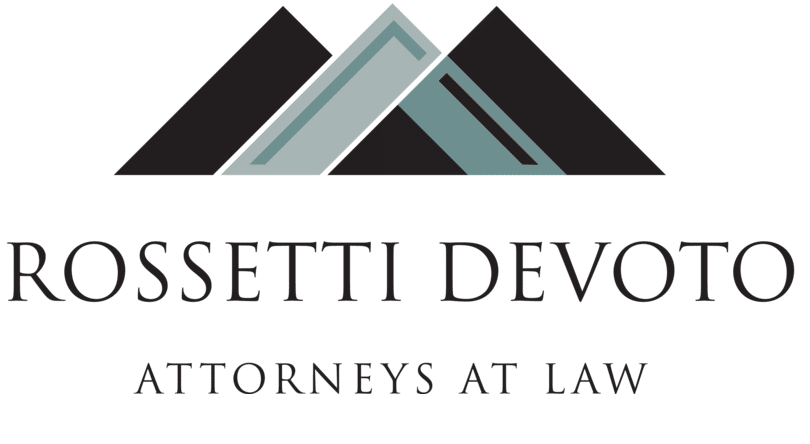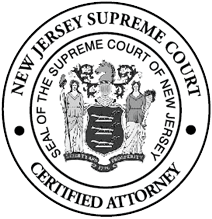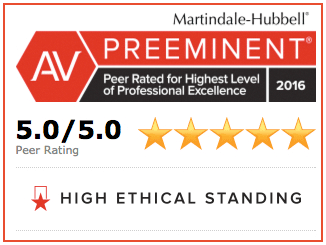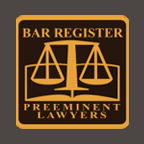When Can Employees Be Interviewed Ex Parte?
Read the paper about Ex Parte written by Louis J. DeVoto.
“When Can Employees Be Interviewed Ex Parte?”
National Trial Lawyer – March 1993
Louis J. DeVoto
Can a representative of a plaintiff’s personal injury firm interview a manager? Or, a low level employee at a store where the plaintiff was injured? Does it matter if the interview is conducted before or after the suit is filed? Does a representative of the defendant or its carrier have a right to be present?
This brief article will set forth why ex parte interviews with certain types of employees are permitted, even if the matter is in suit.
Conductin an Ex Parte Interviews
Lawyers who sue corporations may conduct ex parte interviews of current corporate employees without the consent of the corporation’s attorney. State v. CIBA-GEIGY Corp., 247 NJ Super 314 (App. Div. 1991). New Jersey now joins New York and other states, including California, Illinois and Michigan in a growing trend away from the more formal discovery practice involving these types of witnesses.
The ability to conduct interviews of these witnesses will make it more economical. And, efficient for plaintiffs’ lawyers to pursue premise liability, product liability, contract disputes and other tort actions against corporate defendants. In addition, the real truth will be ascertained early in the case; which should theoretically facilitate a quick resolution of the claim.
CIBA-GEIGY
In CIBA-GEIGY, a corporate criminal defendant moved for a protective order. In this way, prohibiting the state Attorney General from initiating an ex parte interview with the defendant’s employees. The defendant argued that the State did not plan to interview the employees as witnesses. But, rather that the State would try to impute the employee’s acts to the corporation. The defendant, relying on ABA Rule of Professional Conduct 4.2, requested the right of defendant’s counsel to be present at all such interviews. Rule 4.2 states:
“In presenting a client, a lawyer shall not communicate about the subject of the representation with a party the lawyer knows to be represented by another lawyer in the matter, unless the lawyer has the consent of the other lawyer or is authorized to do so.”
ABA Rule in NJ
New Jersey addressed the issue as whether any employees, and if so which employees, are parties under Rule 4.2. Although New Jersey has adopted ABA Rule 4.2 verbatim as RPC 4.2, the Rule does not state whether corporate employees are considered parties. Compounding this ambiguity is the fact that New Jersey did not adopt the ABA Comment to Rule 4.2; it defines the term party as applied to a corporate entity. The ABA Comment to Rule 4.2 states:
“In the case of an organization, this rule prohibits communications by a lawyer for a party concerning the matter in representation with (1) persons having managerial responsibility on behalf of the organization and (2) with any other person whose act or omission in connection with that matter may be imputed to the organization for purposes of civil or criminal liability or (3) whose statement may constitute an admission on the part of the organization.”
New Jersey’s Rules of Professional Conduct
However, the Introduction section of New Jersey’s Rules of Professional Conduct gives the court discretion to reference the official ABA Comments for assistance in interpreting RPC 4.2.
The court in CIBA-GEIGY used the discretion afforded by the Rules of Professional Conduct and declined to adopt two “extreme” positions regarding ex parte interviews. The first position not adopted considered only the corporate entity a party under RPC 4.2. Thus, under this plain language construction, all employees could have an interview without violating RPC 4.2. Advocates of the plain language approach contend that this approach is consistent with the wording of RPC 4.2; employees of a corporate party are never actually parties to the lawsuit. This is unless their name is in the complaint. The court, however, found this position contrary to the official Comments to ABA Rule 4.2.
Public Service Electric & Gas Co. v. Associated Electric & Gas Ins. Services, Ltd. Case
The second position not adopted prohibited all ex parte interviews of corporate employees. The court opined, however, that RPC 4.2 did not contemplate a total ban on ex parte interviews. In fact, an analogy to an ex parte case supported this rationale; it applied this second approach to the former employee context and then subsequently had an overrulling. The court’s analogy was illustrated by Public Service Electric & Gas Co. v. Associated Electric & Gas Ins. Services, Ltd., 745 F.Supp. 1037 (D.N.J. 1990), where Judge Politan endorsed a “bright line” extreme approach prohibiting all ex parte communications with a corporation’s former employees, regardless of the level.
The holding in Public Service Electric & Gas Co. was subsequently overruled by Curley v. Cumberland Farms, Inc., 134 FRD 77, 86 (D.N.J. 1991), where Judge Brotman adopted Magistrate (now Judge) Simandle’s interpretation of RPC 4.2 and held that RPC 4.2 did not operate as a total ban on ex parte communications with a corporate defendant’s unrepresented former employees.
Neil S. Sullivan v. Medco Case
A case decided after CIBA-GEIGY confirms that their rationale for not interpreting RPC 4.2 as a complete ban on ex parte interviews was sound. In Neil S. Sullivan v. Medco., 257 NJ Super 155, 162 (Law Div. 1992), the court went one step further than Curley and held that RPC 4.2 did not even apply to former employees. Now in New Jersey, RPC 4.2 allows all ex parte interviews to take place with former employees unless counsel represents them. Therefore, since RPC 4.2 is no longer applicable to former employees, it must contemplate ex parte interviews of certain current employees or the legislature would have expressly written the rule to bar all ex parte interviews of current employees.
Even though these two extreme positions make it easier for an attorney to know with some degree of assurance when an interview may happen, the CIBA-GEIGY court found these positions contrary to the ABA Comments, lacking in authority. And, they declined to follow either of the two extreme positions.
Instead, the CIBA-GEIGY court, which now clarifies and sets forth New Jersey’s position, adopted a “middle of the road” approach. In doing so, the court followed the holding in Niesig v. Team I, 559 NYS.2d 493 (NY 1990). CIBA-GEIGY, in adopting Niesig, stated:
…we know no better way than the New York Court of Appeals to balance the purpose of the Rule with the realities and practicalities of conducting litigation. CIBA-GEIGY, supra at 324.
In New York
New York opted for a test that best balanced the competing interests of protecting represented parties from the dangers of dealing with adverse counsel while advancing a policy of keeping the testimony of employee witnesses freely accessible to both parties. The New York court defined party as corporate employees whose acts or omissions in the matter under inquiry are binding on the corporation or imputed to the corporation for purposes of its liability, or employees implementing the advice of counsel. The court held that all other employees could go through an interiew informally even after a filed lawsuit.
Thus, now in New Jersey, all current employees may have ex parte interviews. And, they are not considered parties under RPC 4.2 unless the acts or omissions of the corporate employee under inquiry are binding on the corporation, imputed to the corporation for the purpose of the corporation’s liability or any employees who are responsible for actually effectuating the advice of counsel in the matter. The position or title of the employee is irrelevant when applying this rule. It is apparent that most upper and middle management employees will come within the constraints of RPC 4.2. And, thus, in most cases, not to have an ex parte interview after a lawsuit has been filed.
But…
However, most low level employees will not come within the ambit of RPC 4.2. As a result, plaintiff’s attorneys will be able to interview virtually all of these low level employees ex parte without violating any ethical rules.
While CIBA-GEIGY is a criminal case, it is clear that its holding applies to civil cases since the rationale of CIBA-GEIGY was derived from the civil case of Niesig v. Team I. Moreover, it is important to note that the Comment to ABA Rule 4.2 expressly refers to the imputation of criminal as well as civil liability. The New Jersey court referred to the official Comment to ensure that our law would be consistent with the legislative intent of Rule 4.2 even though they chose not to adopt the Comment as law. CIBA-GEIGY, supra at 323.
West Virginia, California, and Washington
The following state decisions from West Virginia, California and Washington allow ex parte interviews with current employees.
The West Virginia case involved an action against an employer brought by a discharged employee. The employer had a grant of a protective order to prevent the employee’s lawyer from contacting any employee or employer without permission of employer’s counsel. The West Virginia Supreme Court of Appeals held that the protective order was too broad under the Rules of Professional conduct. And, the employee’s lawyer has permission to contact certain employees without permission of the employer’s counsel.
The California case involved an action against a corporation brought by several state government agencies for alleged unlawful disposal of hazardous waste. The government entities had permission to contact all present and certain former employees of the defendant corporation in connection with the civil and criminal proceedings. The court held that ex parte contacts would have permission to contact unrepresented former employees and present employees other than officers, directors or managing agents of corporate party who were not separately represented so long as the communication did not involve employee’s act or failure to act in connection with the matter which may bind corporation.
Finally, in a Washington case, a plaintiff in a malpractice action moved for a protective order declaring that their attorney had a right to interview ex parte current employees of the defendant health maintenance organization. The Supreme Court held that current employees of the health maintenance organization would be considered parties under the disciplinary rule. This is if they had managing authority sufficient to give them the right to speak for, and bind, the corporation.
Illinois, Massachusetts, and Michigan
The following federal decisions allow ex parte interviews with current employees.
In Monahan v. Johnson, 128 FRD 659 (N.D. Ill. 1989), children in custody of the Illinois Department of Children and Family Services brought a class action against the director of the agency. The court allowed the plaintiff’s attorneys to conduct interviews with low-level agency employees, including caseworkers. But, they did not have permission to use such informally gathered evidence as admissions of party opponents. See also In re Industrial Gas Antitrust Litigation, 4 Fed.R.Serv.3d 163 (N.D. Ill. 1985).
In the Massachusetts case of Morrison v. Brandeis University, 125 FRD 14 (D. Mass. 1989) a University instructor brought a civil rights action against Brandeis University following his denial of tenure. A U.S. Magistrate held that the instructor would have the authorization to interview university employees who participated in his tenure decision. This is without advance notice to the university’s counsel.
In the Michigan case of Massa v. Eaton Corp., 109 FRD 312 (W.D. Mich. 1985), the defendant corporation moved for entry of a protective order after the plaintiff, a former employee, conducted informal discovery by interviewing several managerial level employees of the defendant corporation regarding subject of the pending litigation. A Magistrate held that the interviewed managerial level employees did not possess sufficient authority to commit the corporation for purposes of the litigation. And, Michigan’s disciplinary rule on ex parte communications with a represented party did not prohibit the ex parte interviews with those individuals.
Kansas, Montana, and Utah
The Kansas case of Chancellor v. Boeing Company, 678 F.Supp. 250 (D. Kan. 1988), involved an action against a corporate employer involving promotion denials. The employer moved for a protective order prohibiting pretrial ex parte interviews with certain employees. The court held that the plaintiff’s attorney did not have permission to conduct pretrial ex parte interviews with employees who might have had an involvement in the denial of promotions at issue. This is if their actions could be imputed to the corporation for the purposes of civil liability. However, the court allowed the plaintiff to conduct ex parte interviews of employees who did not come within the scope of the protective order.
In the Montana case of Porter v. Arco Metals Co., 642 F.Supp. 1116 (D. Mont. 1986), the employer moved for a protective order in a suit filed by a former employee alleging wrongful demotion. The District Court held that former employee’s counsel could conduct ex parte interviews of others employed at the time of events in question, so long as he did not attempt to interview present. Or, former employees with managerial responsibilities concerning the matter in litigation and did not inquire into privileged areas of communication.
In Bouge v. Smith’s Management Corp., 132 FRD 560 (D. Utah 1990), the Utah Rule of Professional Responsibility prohibiting an attorney from communicating with a represented party did not apply to ex parte interviews with low-level employees in an action brought against an employer.
Low-Level Employees
As should now be readily apparent, after reviewing these cases, the growing body of case law supports the right to interview ex parte low-level employees.
Interviewing low-level employees is an expedient way to investigate a claim while promoting a search for the truth. Low-level employees are key fact witnesses in many cases. They may be more apt to provide a truthful statement when no corporate attorney is present. Examples of these types of witnesses include security guards, cashiers, waiters, janitors and bank tellers. They must have permission to speak to the plaintiff’s attorneys. Or, their investigators because they usually have helpful and accurate information with respect to the occurrence. Thus, these employee witnesses are an excellent source in which to base a claim. Additionally, allowing ex parte interviews with low-level employees may induce settlements.
Conclusion
In fact, it is essential that the lower courts maintain consistency in decisions on ex parte interviews. Currently, agreement on this issue is lacking. This is because of the wide discretion each judge enjoys with respect to utilizing the Comments to interpret RPC 4.2. This disagreement has resulted in confusion on the trial bench and trial bar. CIBA-GEIGY has clarified some of this confusion but questions still remain unanswered.
The New Jersey court noted at the end of its opinion that RPC 4.2 applies only to a party after the commencement of a lawsuit. CIBA-GEIGY, supra, at 325. Since the opinion mentions nothing about an attorney’s ability to conduct ex parte interviews before a filed suit, and because RPC 4.2 deals only with post suit communications, one must readily conclude that pre-suit ex parte interviews may be conducted with all employees. Thus, under New Jersey’s current law the practical and ethical way to conduct ex parte interviews with employees is to do so before the lawsuit is filed.
A better rule would allow all ex parte interviews of any corporate employee regarding factual happenings of an occurrence regardless of whether or not suit has been filed. If plaintiff’s counsel wishes to cross the line into questions outside that of the actual factual occurrences, the limitations set forth in CIBA-GEIGY should apply. However, when and if our Supreme Court settles this issue, CIBA-GEIGY remains the guide for trial attorneys.









